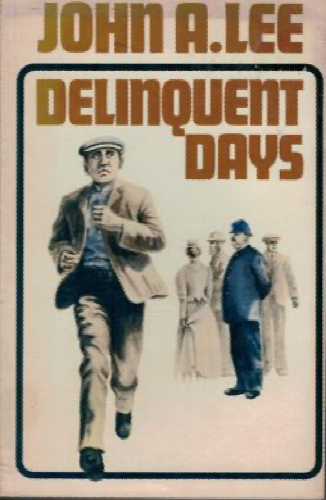
Delinquent Days
Next to Simple on a Soap-Box the most important of all [John A. Lee's] works of non-fiction is the openly autobiographical Delinquent Days (1967), which carries on where the novel The Hunted leaves off and ends with Lee's release from Mt Eden gaol in 1913. More effectively in this book than any other Lee describes the foundations of his humanistic political socialism while on the run from Borstal, in the companionship of labourers and swaggers, and in the left-wing writings of Jack London and Upton Sinclair that he came upon in labourers' huts. It was that philosophy that sustained him to the end, and informed everything he wrote, that and his ability to respond lyrically to the natural world, seen nowhere more movingly than in Delinquent Days.
Some fading.
